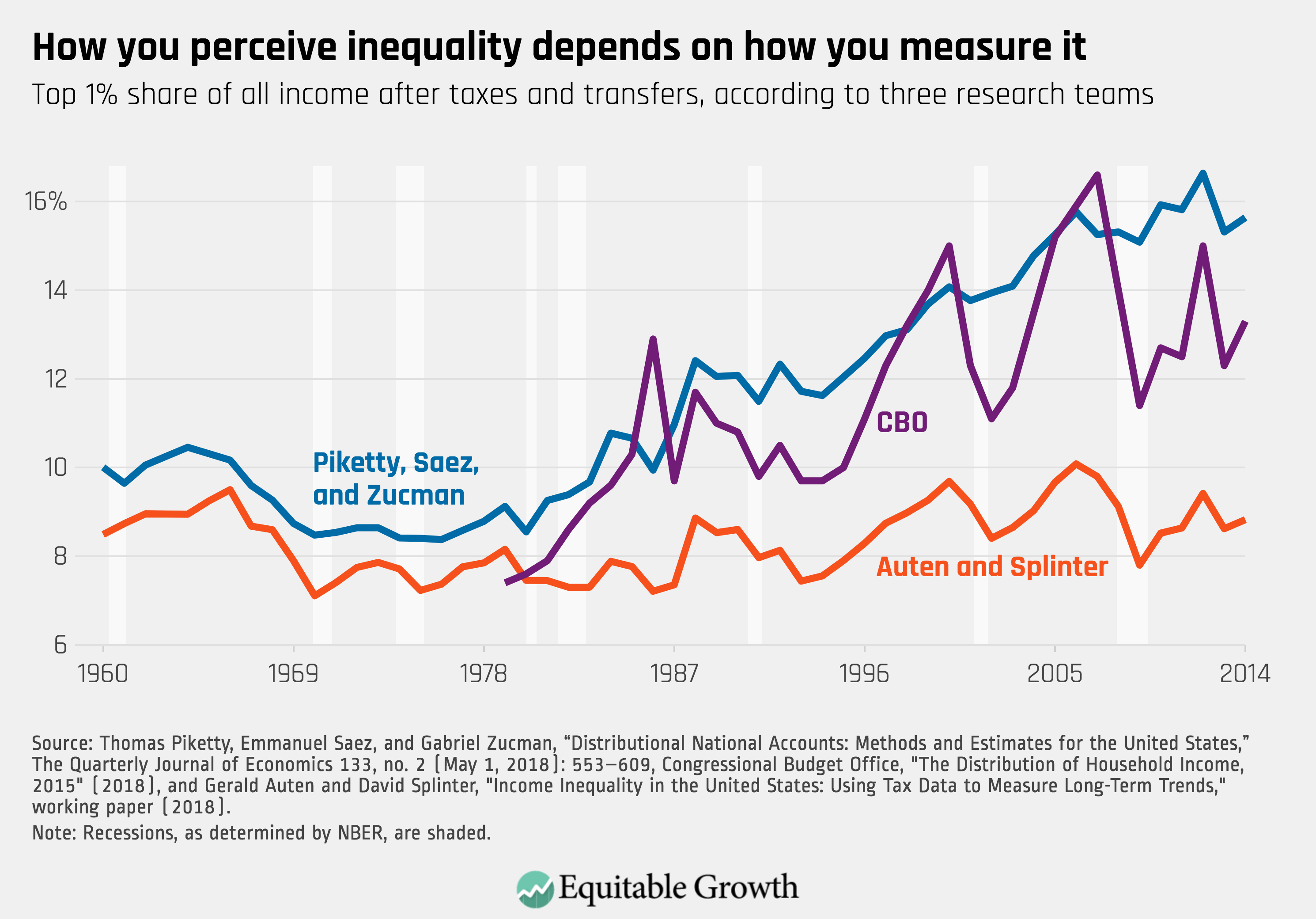Weekend reading: “Regional inequalities” edition
This is a weekly post we publish on Fridays with links to articles that touch on economic inequality and growth. The first section is a round-up of what Equitable Growth published this week and the second is the work we’re highlighting from elsewhere. We won’t be the first to share these articles, but we hope by taking a look back at the whole week, we can put them in context.
Equitable Growth round-up
This week, Equitable Growth released the next episode in our “In Conversation” series, in which our Executive Director and Chief Economist Heather Boushey discusses the research of prominent economists and how their research relates to contemporary policy debates on inequality and growth. In this edition, Heather talks to Princeton University Professor of Economics, Public Policy, and Finance Atif Mian on the role of debt in the most recent U.S. Recession and boom-and-bust cycles generally as well as some potential negative consequences of the contemporary low-interest-rate environment.
Equitable Growth Computational Social Scientist Austin Clemens examines recent progress toward consensus on measuring U.S. income inequality. Building off of a panel discussion at the recent ASSA Annual Meeting of the American Economic Association, Austin compares the measures of inequality used by the Congressional Budget Office, by Gerald Auten at the U.S. Treasury Department’s Office of Tax Analysis and David Splinter at the congressional Joint Committee on Taxation, and by Thomas Piketty at the Paris School of Economics and Emmanuel Saez and Gabriel Zucman at the University of California, Berkeley.
In his weekly “Worthy Reads” column, UC-Berkeley economist and Equitable Growth columnist Brad Delong highlights recent research and writing in economics from Equitable Growth and other economists. In addition to pointing to articles by economist Kate Bahn and Senior Policy Advisor Liz Hipple on empirically backed labor market policies, Brad summarizes the findings of a recent working paper by economists Doruk Cengiz, Arindrajit Dube, Attila Lindner, and Ben Zipperer on the effects of the minimum wage on low-wage jobs.
Links from around the web
Claire Kelloway in Washington Monthly magazine delves into the causes and consequences of market concentration in the agricultural industry. Kelloway explains how “Big Ag” has increased costs and depressed earnings for farmers across the country, often damaging the economic well-being and growth prospects of entire regions that rely heavily on the industry. Kelloway argues that renewed antitrust enforcement is the best strategy to address agricultural market concentration head-on, thereby increasing farmers’ earnings and jumpstarting competition and regional growth.
In the same issue of the magazine, Daniel Block also addresses the growing problem of regional inequality across the United States. Block examines how deregulation, underinvestment, and the demise of antitrust enforcement have facilitated the economic decline of many of America’s small cities and towns. On top of strengthened antitrust enforcement from the airlines to the agricultural industry, Block argues for renewed federal investment in rural America—with a focus on education, technology, and other pillars necessary to create an innovative, entrepreneurial ecosystem.
Matthew Shaer in The New York Times Magazine highlights another negative consequence of the economic neglect of many rural communities in the United States. Increasingly deprived of the state and federal funds they need, many local municipalities have become increasingly dependent on fines and fees from residents, especially via the criminal justice system, to fund basic local services. Yet given low wages and a worsening drug use crisis, many low-income residents are unable to afford these costs, trapping them in a cycle of debt, imprisonment, and chronic poverty.
David Harrison in The Wall Street Journal analyzes the findings of a recent study from Harvard Business School on the negative effects of the contemporary caregiving crisis in the United States. The researchers at HBS found that almost three quarters of Americans have caregiving responsibilities, and that 32 percent of this group has had to leave a job to meet this obligation. Harrison’s article demonstrates that policymakers and employers must work to find solutions for these workers to avoid further exacerbating labor shortages.
Henry Grabar at Slate discusses recent empirical findings on wages in cities for workers with different educational backgrounds. Despite evidence demonstrating that employment growth since the recession has been concentrated in big cities, Massachusetts Institute of Technology economist and Equitable Growth Research Advisory Board member David Autor finds that since 1970, the wage premium for living in cities has increased for college-educated workers but virtually vanished for less-educated workers. To reverse this trend, Autor argues that policymakers must work to rebuild middle-class jobs in America’s cities and to build affordable housing to reduce expenses for low-wage workers given the high rent in many cities.
Friday figure

Figure is from Equitable Growth’s, “Progress toward consensus on measuring U.S. income inequality”
